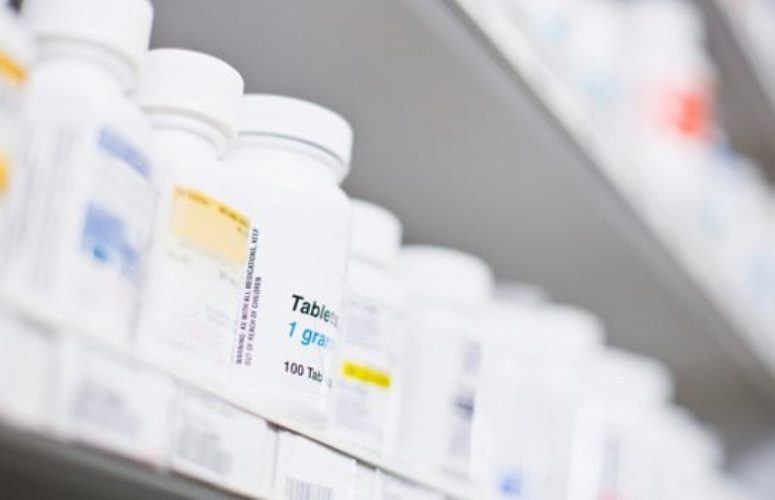
Ipsen Biopharmaceuticals, Inc. Announces FDA Approval of Dysport®
On Jul 17, 2015Basking Ridge-based Ipsen Biopharmaceuticals, Inc., an affiliate of Ipsen, announced that the U.S. Food and Drug Administration (FDA) has approved its supplemental Biologics License Application (sBLA) for Dysport® (abobotulinumtoxinA) for the treatment of upper limb spasticity (ULS) in adult patients to decrease the severity of increased muscle tone in elbow flexors, wrist flexors and finger flexors. Clinical improvement may be expected one week after administration of Dysport®. A majority of patients in clinical studies were retreated between 12 and 16 weeks; however, some patients had a duration of response as long as 20 weeks. Dysport® is the first therapy in the past five years that was approved by the FDA for the treatment of adults with upper limb spasticity. The Dysport® Phase III trial was the first registration study to evaluate ULS treatment in adult patients with both stroke and traumatic brain injury. Dysport® was previously approved for the treatment of adults with cervical dystonia (CD) in the United States in April 2009.
“It is estimated that 1.8 million adult Americans may suffer from spasticity1234, which in the upper arm can cause muscle stiffness, flexing, spasms, twitching and pain. We are pleased to offer another treatment option for those individuals with upper limb spasticity, a debilitating condition that often comes on the heels of a traumatic health event such as a stroke or brain injury,” said Cynthia Schwalm, Chief Executive Officer, Ipsen Biopharmaceuticals, Inc. “Spasticity can have a profound impact on adult patients and their abilities to perform the most basic daily tasks. Ipsen is committed to providing these patients, their caregivers and physicians with a comprehensive support offering including Dysport®, the IPSEN CARES™ patient assistance program, and the C.L.I.M.B. injector training platform for healthcare providers.”
The approval was based on a rigorous development program that included clinical trials conducted in over 600 patients. In the Phase III pivotal study, 238 adult patients with upper limb spasticity participated in the study for up to one year. The international, multi-center, double-blind, randomized, placebo-controlled study compared the efficacy of Dysport® (n=159) versus placebo (n=79) in hemiparetic patients following stroke or brain trauma. The trial also included patients who were botulinum toxin naïve or previously treated with a botulinum toxin, encompassing a broad patient population. The co-primary endpoints of the study were the improvement of muscle tone in the treated upper limb measured by the Modified Ashworth Scale (MAS) versus placebo and the clinical benefit for patients as assessed by the Physician Global Assessment (PGA) versus placebo at Week 4. The trial was followed by an open-label study wherein patients received Dysport® for up to five treatment cycles to assess the long term safety.
The Phase III pivotal data showed that those treated with Dysport® demonstrated statistically significant improvement in muscle tone measured by the MAS and a significantly higher physician-rated clinical benefit measured by the PGA versus placebo at Week 4 (p≤ 0.05). At Week 4, both doses of Dysport® (500 units and 1000 units) significantly reduced muscle tone as measured by MAS in all primary target muscle groups, which included elbow, wrist, and finger muscles, with approximately 3 out of 4 patients* responding to Dysport®. The most frequently reported adverse reactions (≥2 percent) are urinary tract infection, nasopharyngitis, muscular weakness, musculoskeletal pain, dizziness, fall and depression. The safety profile observed in the study was consistent with the known safety profile of Dysport®, and there were no differences in the rate of serious adverse events between the treatment groups: placebo (3.7 percent), Dysport® 500 U (3.7 percent), Dysport®1000 U (3.7 percent).
Dysport® and all botulinum toxin products have a Boxed Warning which states that the effects of the botulinum toxin may spread from the area of injection to other areas of the body, causing symptoms similar to those of botulism. Those symptoms include swallowing and breathing difficulties that can be life-threatening. Please see below for additional Important Safety Information.
“The FDA approval of Dysport® provides a new therapeutic option to help adults living with spasticity,” said Allison Brashear, M.D., Professor and Chair of Neurology, Wake Forest Baptist Medical Center and the U.S. principal investigator of the Phase III trial. “This approval is based on strong data which showed that Dysport® improved muscle tone in the upper limb – essential for active use of the hand and arm. It is important to realize that early identification is critical for patients with upper limb spasticity, given that when left untreated, spasticity can result in increased muscle tone.”
Related Articles:





